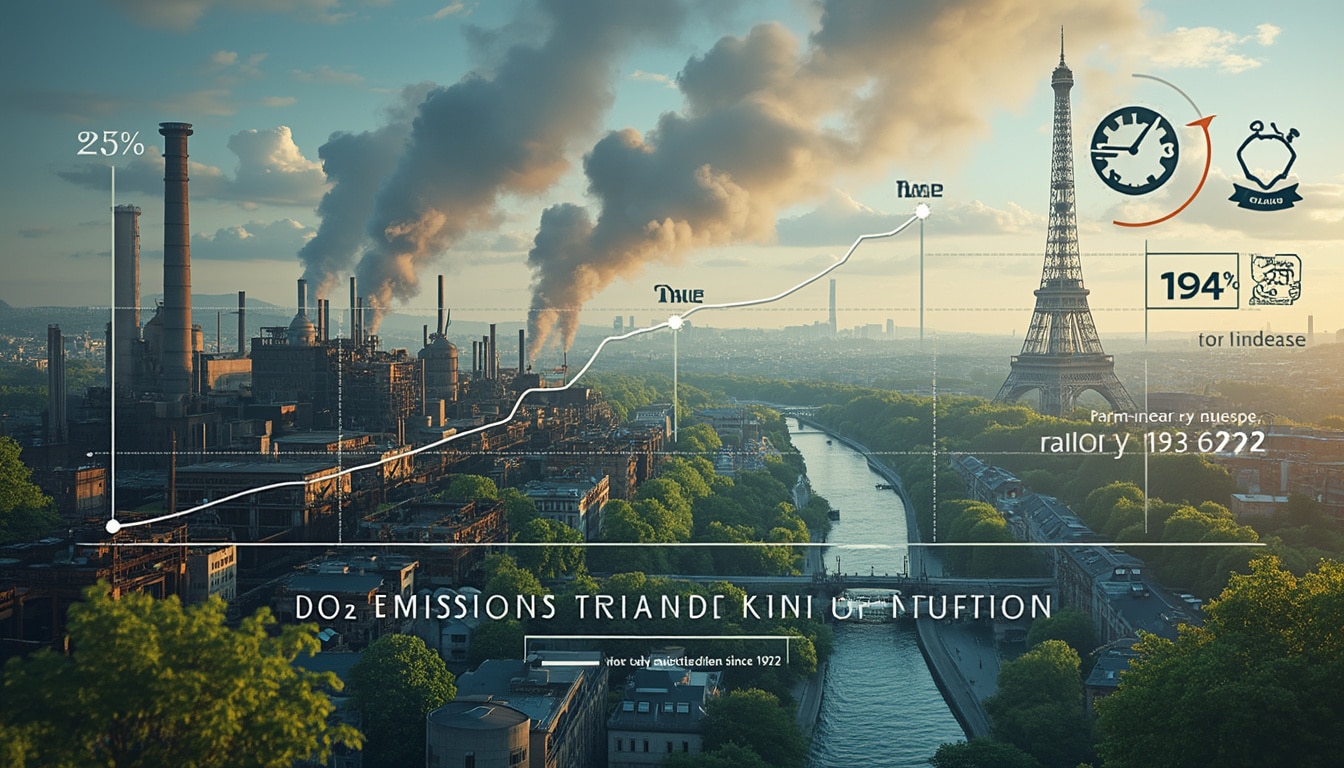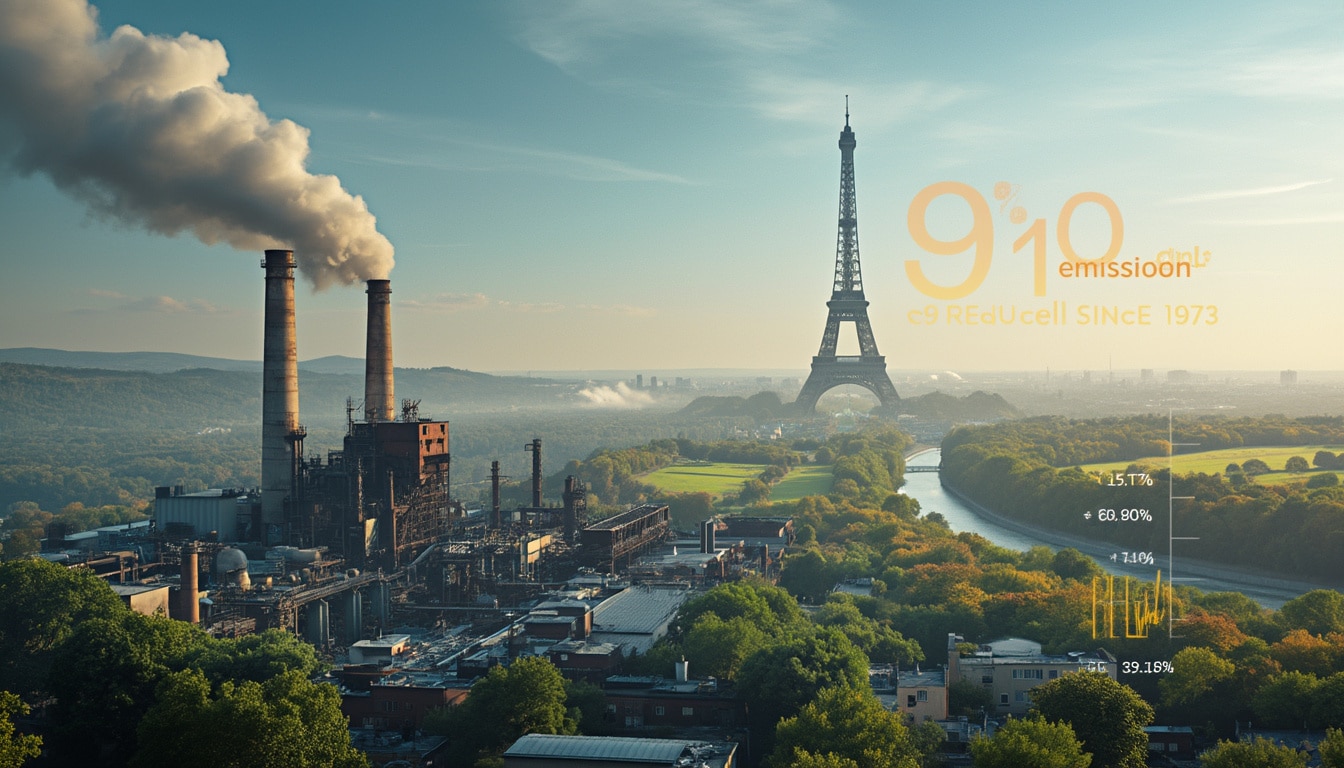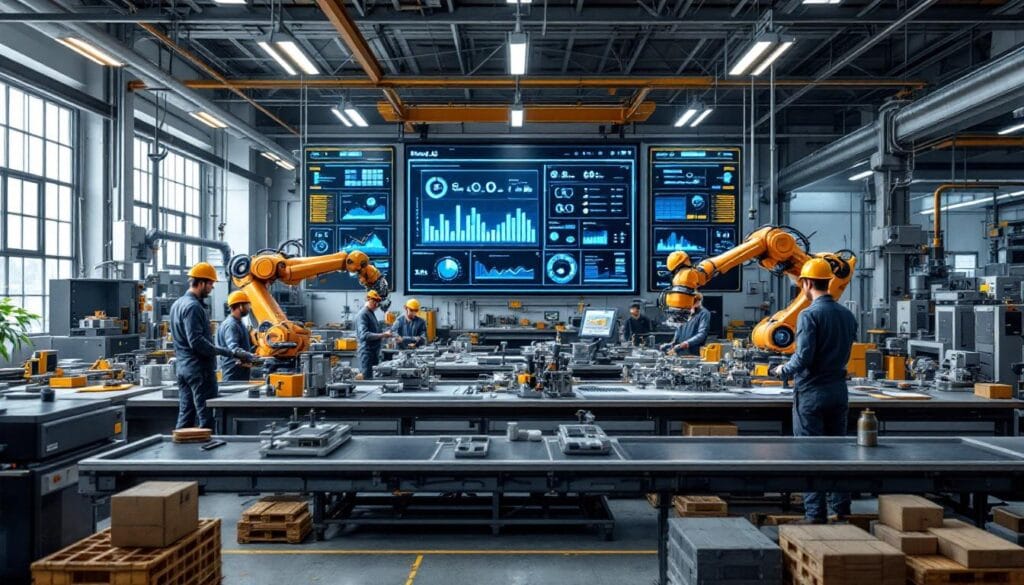Since 1973, France has undergone an economic transformation marked by deindustrialization, a phenomenon that has contributed to a 9% decrease in CO2 emissions. However, this transformation is accompanied by a significant increase in the carbon footprint of imported products. Thus, while the French territory sees its emissions decline, the overall environmental impact becomes more complex. The study conducted by Rexecode reveals that this reduction in emissions owes much of its success to the energy efficiency of the industrial sector, particularly manufacturing, which accounts for the majority of this reduction, demonstrating the importance of the local energy mix. Producing more in France could therefore have a positive impact on the global environment.
Since 1973, deindustrialization has led to a 9% reduction in annual greenhouse gas emissions in France. This decrease is partly attributed to the closure of factories, but mainly to energy efficiency gains in the industrial sector, which alone accounts for 71% of the total reduction observed, with 52% coming from the manufacturing sector. However, the carbon footprint has increased due to the rise in imported products. CO2 emissions in France have thus fallen by 31% since 1990, but imported emissions have climbed by 32% since 1995.

Table des matières
ToggleImpacts of Deindustrialization on CO2 Emission Reduction in France
Deindustrialization has had a significant effect on the reduction of CO2 emissions in France, contributing to a decrease of 9% since 1973. This phenomenon has been largely influenced by the transfer of production to low-cost countries, resulting in a displacement of pollution on a global scale. The analysis of this period shows that the closure of factories has concentrated a significant portion of the reduction in greenhouse gas emissions. However, it has also led to an increase in imports, thereby raising the overall carbon footprint of France (source).
Energy efficiency gains achieved in the industrial sector have played a key role in the reduction of emissions. In 1973, the manufacturing sector was responsible for 52% of this decrease, thanks to the adoption of cleaner technologies and improved processes. At the same time, the progression of the French energy mix, which is less carbon-intensive than in other nations, has further mitigated the environmental impact (source).
Energy Consequences of Deindustrialization
Deindustrialization has not only affected CO2 emissions, but it has also led to other energy consequences. French industries have managed to innovate, reaching levels of energy efficiency higher than many of their international competitors. By relocating, France has effectively outsourced a portion of its pollution, but it has also lost energy expertise (source). This situation underscores the need for thoughtful reindustrialization focused on sustainability and reducing the carbon footprint.
Future Perspectives and Reindustrialization
Today, the idea of reindustrializing France faces the challenges of globalization and ecological transition. However, Rexecode emphasizes that, given the energy mix, increased production in France could be more favorable for the environment. Reindustrialization could be accompanied by a reduction in imported emissions, questioning the measurement of emissions based solely on national territory. This implies rethinking climate policy on a global scale, incorporating both imported flows and domestic emissions (source).
Comment sommes-nous, sur certains secteurs, devenus un pays émergent ? Comment la désindustrialisation s'est-elle emballée dans les années 2000 ? Mais surtout : comment luttons-nous activement pour favoriser la réindustrialisation de notre pays, avec @Bpifrance et tous les… pic.twitter.com/wehWSJt3cx
— Nicolas Dufourcq (@NicolasDufourcq) December 15, 2024




